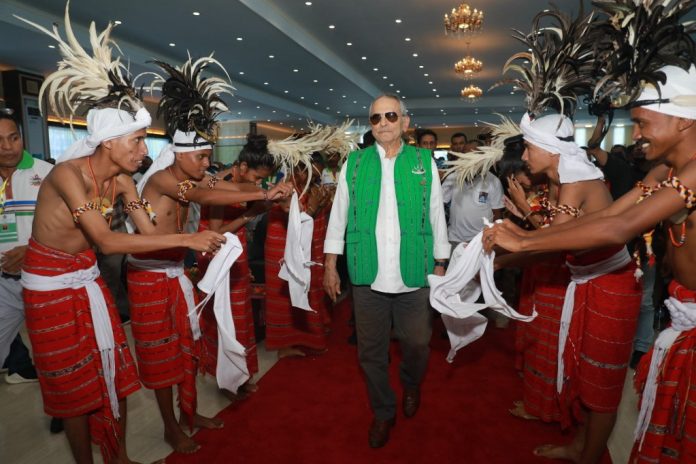Nobel Peace Prize laureate Jose Ramos-Horta is leading Timor Leste’s presidential election, garnering 44 percent out of 50 percent votes counted by Sunday afternoon, according to data from the country’s Election Secretariat.
The Southeast Asian nation just had the presidential election on Saturday, presenting 16 candidates in the political contest.
Incumbent president Francisco Guterres has garnered 22.66 percent. None of the rest 14 candidates reached 10 percent.
Ramos-Horta, who is one of Timor Leste’s founding fathers and the country’s former president, is backed by the National Congress for Timorese Reconstruction Party.
Guterres is endorsed by the Revolutionary Front for the Independent East Timor Party.
The final data is expected to be published in the coming days.
First hammered by the pandemic, East Timor’s economy took another hit last year when Cyclone Seroja struck, killing at least 40 people on its half of the island and transforming communities into wastelands of mud and uprooted trees.
Political tensions between the two largest parties — Guterres’ Revolutionary Front for an Independent East Timor (Fretilin) and the National Congress of the Reconstruction of Timor-Leste (CNRT) — have also risen in the past four years, leading to a political deadlock that has seen the government fail to pass a budget.
Ramos-Horta said the financial situation would be his main priority: “The most important thing for me is to strengthen the stability and build a better economy”.
Last week, he said he felt compelled to return to politics because Guterres had “breached the constitution” and overstepped his presidential role.
But Guterres, a 67-year-old former guerilla fighter, said he was confident the elections would bring him a second term.
“I believe I will win this election and people will reconfirm their rights through the election. If I am re-elected, I will keep defending the democratic rights of our country and create sustainable development”.
Around 860,000 were registered to vote at the country’s 1,500 polling stations.
If no one wins an absolute majority, a second round of voting will be held on 19 April and the winner will take office on 20 May0, East Timor’s 20th anniversary of independence from Indonesia, which occupied the former Portuguese colony for 24 years.
Major political events in East Timor have often been marred by violence and conflicts.
In 2018, more than a dozen people were injured and several cars torched after clashes between main parties Fretilin and CNRT.
SOURCE: XINHUA/AFP/PACNEWS













